Our Earth Positive apparel consists of 100% organic, ethically-made products, manufactured solely using sustainable energy generated from wind and solar power. Their manufacture adheres to the highest possible environmental, social and ethical world standards, in one of the world’s most environmentally damaging industries.
100% ORGANIC PRODUCT
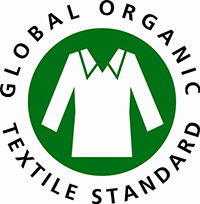
Under the Global Organic Textile Standard (G.O.T.S.) farmers and field workers are protected by stringent social criteria and by the ban on the use of poisonous chemicals that can severely affect their health and that of their families.
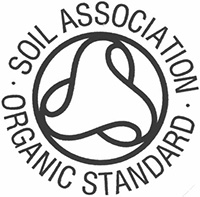
The Soil Association is the UK’s leading campaigning and certification organization for organic food and farming and it’s their certificate of organic origin that guarantees our apparel is a part of the G.O.T.S.
Cotton for our apparel is farmed in regions where organic cotton is planted and harvested by hand, without mechanization. Because organic farming doesn’t use petroleum based chemical fertilizers, pesticides or herbicides, it’s less reliant on fossil fuels.
Our apparel is made in carbon-neutral manufacturing facilities in India, from “low-impact” organic cotton, and is distributed through carbon neutral warehouses and offices in London that use only renewable green electricity.
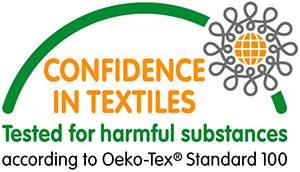
It’s certified by the Oeko-Tex 100 Standard, Class I, which is a guarantee of the safety of textiles and dyestuffs to human health. It also means that more care is taken in adopting environmentally friendly production methods throughout its manufacturing.
ETHICAL PRODUCTION
Pressure to quickly produce increasing quantities of cheap textiles has lead the clothing industry to allow some of the most unethical trade practices on the planet. Worst examples include child labor, excessive working hours, and unsafe and unhygienic working conditions.
The organic standards that our apparel is manufactured under help to free poor farmers tied into third world debt to chemical companies on the “pesticide treadmill”.
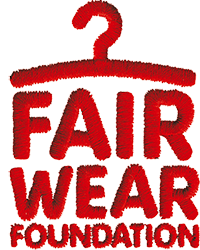
To ensure it doesn’t contribute to the social injustice commonly known as sweatshop labor, its manufacturer has made their supply chain transparent since 2006, with independent audits by the non-profit organization, the Fair Wear Foundation (FWF). The FWF exists to promote fair labor conditions in the textile industry worldwide.
The Code of Conduct, which is basically a contract between the manufacturer of our apparel and the FWF, incorporates the following labor standards:
- No use of child labor
- No use of forced labor

- Safe and healthy working conditions
- Legal labor contract
- Payment of a living wage
- Freedom of association and the right to collective bargaining
- No discrimination against employees
- No excessive hours of work
In addition, our apparel doesn’t use any cotton from Uzbekistan while the use of forced child labor is endemic. This follows the recommendations of the Environmental Justice Foundation “Clean Cotton Campaign”.
SUSTAINABLE
It can take more than 20,000 liters of water to produce 1kg of cotton, equivalent to a single T-shirt and a pair of jeans. That’s why our apparel is made of cotton farmed in a region that receives up to 95% of its water from the monsoon rain.
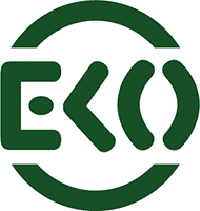
This reduces the need for large-scale irrigation projects normally associated with conventional cotton farming, which often deprive local villages of scarce water resources by draining lakes and rivers.
Processing of the fabric dye effluent is done in a controlled closed-loop purification system that uses treatment ponds, sand filtration and reverse-osmosis to convert the waste water into clean water.
RENEWABLE ENERGY

The primary energy source for manufacturing our apparel is thirty massive wind turbines that generate a continuous source of renewable electricity.
Climate-neutral means the manufacturer’s industrial greenhouse gas emissions have been reduced to pre-industrial levels through low-impact (low-emission) organic agriculture and carbon-neutral industrial manufacturing. This is achieved through substituting energy from fossil fuel powered power stations with clean, renewable energy from wind turbines and solar power.
CARBON FOOTPRINT
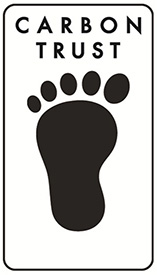
By using renewable energy and low-impact farming techniques the carbon footprint of our apparel has been reduced by over 89%, while producing it in an ethical and sustainable manner.
Your new stronger.braver.FIGHTER apparel is living proof that it’s possible to produce cotton clothing without any detrimental effects to the Earth’s soil, water or inhabitants, whether they be animals, plants or people, or to its climate.



